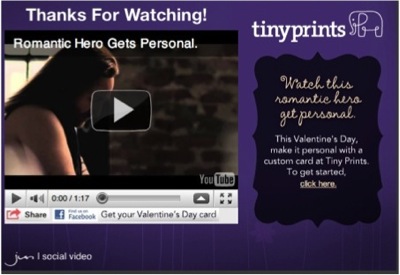
I applaud Mike Shields’ recent column about social video. The social video sector is new and rapidly evolving. Critics like Mike help clarify things, and they push companies like mine to constantly improve.
First off, since the segment is so new, let’s take a moment to define it. My company, Jun Group, defines social video as online video programs created for major brands. These programs enable user to opt-in to watch videos, which they can share with others. To us, this is paid media, plain and simple. It’s not about viral explosions or social fire; it’s about mass reach, pinpoint targeting, and consistent, measurable ROI.
As Mike’s article indicated, Jun Group’s delivery system is not a mystery. Over the past several years, we have built direct integrations into 400 top-tier, brand-safe social games. According to Facebook, 53 percent of their users log in specifically to play games such as Happy Aquarium, It Girl, and Mall World. That’s 290 million people globally, and over 70 million in the U.S. We’re not talking about Halo here. These are social experiences that are largely responsible for the death of daytime soaps, among other things.
Our direct integrations give Jun Group access to over 100 million monthly active users globally, and over 60 million in the U.S. – moms, teens, Baby Boomers, you name it. Unlike traditional video ad networks, our clients have full access to our site list and they can watch every view happen in real time. We don’t worry about brand safety because we don’t need 50,000 publishers to achieve reach. We only work with major players who are 100 percent squeaky clean. Simple as that.
Now, three-or-four times a year, a Jun Group client will hand us a video that “goes viral” and delivers 10x what the client paid for. It’s great when that happens, but let’s be honest, it’s all about the creative. Hollywood doesn’t produce hits every time and neither do creative agencies. It’s disingenuous to imply that we have some power to make that happen on any kind of consistent basis.
The vast majority of our clients aren’t looking for “viral”; their goal is to invest their online video dollars wisely. In fact, we believe our social video product offers a number of things that that pre-roll, the most popular form of Web video advertising, does not.
For example, we regularly see 95 percent completion rates for 30-second videos. We also provide brands with the opportunity to run videos up to three minutes-long — which still get about 80 percent completions. Plus, we allow brands to target by age, gender, and geography. And lastly, we typically see three-25 percent of users taking some sort of action after viewing a brands’ video, such as visiting their site, looking for that brand’s store, downloading a coupon, rating their products, etc.
What’s the magic? It’s simple: when you put people in control and you don’t interrupt them, you get better results. Period. We’ve proven it hundreds of times.
For those who think that “incentivized” is a dirty word, I’ll say this: virtual goods are estimated to be a $7 billion business this year, rising to $14 billion over the next two years. It is a core behavior for hundreds of millions of people, and it is a fundamental part of the social media experience. In other words, it’s not a fad.
For these reasons, we believe that social video, as I’ve defined it, has a bright future. It simply outperforms other video formats in engagement, targeting, completion, video length, and post-view activity. In fact, our placements regularly outperform other units by 5x–6x, and standard rich media by even more. Oh, and there’s no shortage of inventory.
Again, I truly appreciate Mike’s critiques. We’re all sick and tired of online video smoke-and-mirrors. I hope I have demonstrated that social video, when it’s done correctly, is just the opposite.
Mitchell Reichgut is founder and CEO of Jun Group.
More in Media

In Graphic Detail: The scale of the challenge facing publishers, politicians eager to damage Google’s adland dominance
Last year was a blowout ad revenue year for Google, despite challenges from several quarters.

Why Walmart is basically a tech company now
The retail giant joined the Nasdaq exchange, also home to technology companies like Amazon, in December.

The Athletic invests in live blogs, video to insulate sports coverage from AI scraping
As the Super Bowl and Winter Olympics collide, The Athletic is leaning into live blogs and video to keeps fans locked in, and AI bots at bay.





